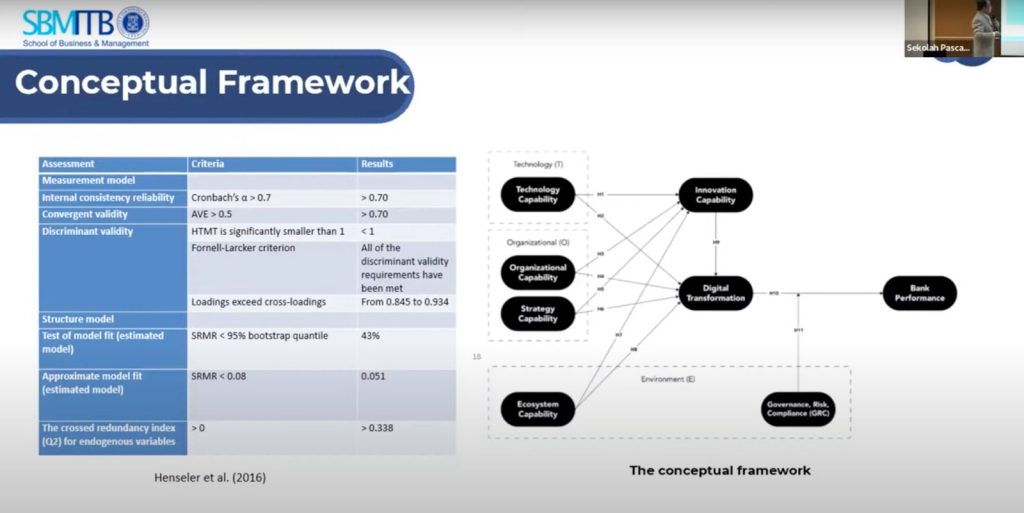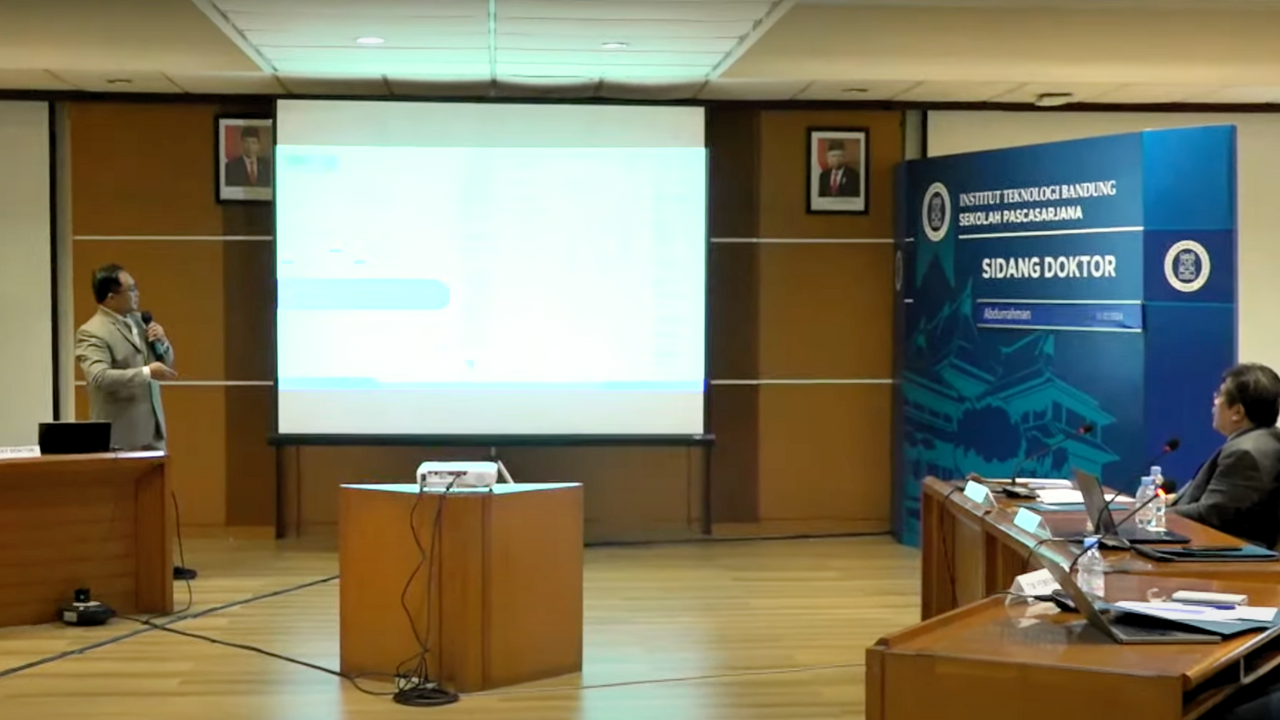In today’s rapidly changing digital economy, searching for innovative strategies to adapt to transformational changes is crucial. The Chairman of STMIK Bandung and founder of the Digital Transformation Global Alliance, Dr. Abdurrahman, M.T., discusses the essence of digital transformation, especially in the Indonesian banking sector, in his doctoral research at the ITB Doctoral Study Program. His dissertation has achieved significant milestones in the academic world.
Abdurrahman presented his dissertation entitled “Developing a Model for Dynamic Digital Transformation Capabilities based on a Technological-Organizational-Environmental Framework to Improve Banking Performance: Insights from the Indonesian Context” at an Open Senate Session at the ITB Postgraduate Program on Friday (16/2). Prof. Dr. Ir. Dermawan Wibisono, M.Eng from SBM ITB, chaired the session.
Abdurrahman’s research is paramount, considering the importance of digital transformation in today’s economy. In an era marked by cross-border integration, innovation, and transformation, his research explores the dynamics of digital transformation, especially in the Indonesian banking sector.
“There are several challenges in the digital transformation of the banking industry in Indonesia, such as the delayed implementation of digitalization by traditional financial service providers,” explained Abdurrahman.
Using a mixed-method approach, Abdurrahman surveyed 325 banking professionals from 53 banks in Indonesia who are engaged in digital transformation initiatives. Through qualitative and quantitative analysis, his research identifies the barriers, drivers, and routines of dynamic capabilities critical to improving bank performance.
Theoretical insights from Abdurrahman’s study underscore the effectiveness of dynamic digital transformation capabilities within a Technology-Organization-Environment (TOE) framework. His research highlights the importance of a socio-technical approach by emphasizing the role of innovation and governance in shaping dynamic capabilities.
From a managerial perspective, Abdurrahman’s research advocates a holistic approach to digital transformation. This encourages leaders in the banking sector to unify organizational sectors and effectively overcome implementation barriers.
Abdurrahman’s research lays the foundation for further research regarding digital transformation maturity assessment models. Further studies could refine dynamic capabilities frameworks tailored specifically to digital transformation contexts, contributing to continued progress in this field.





